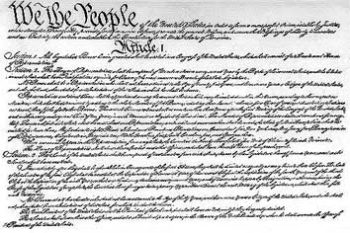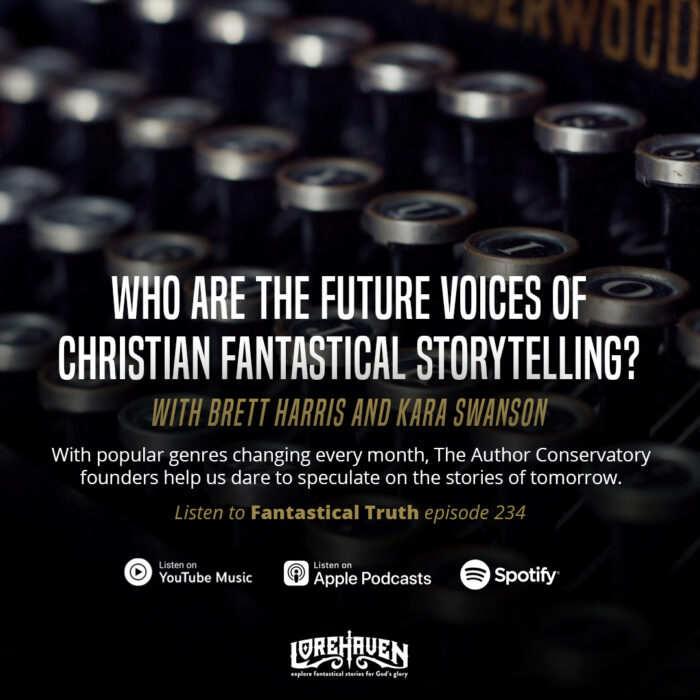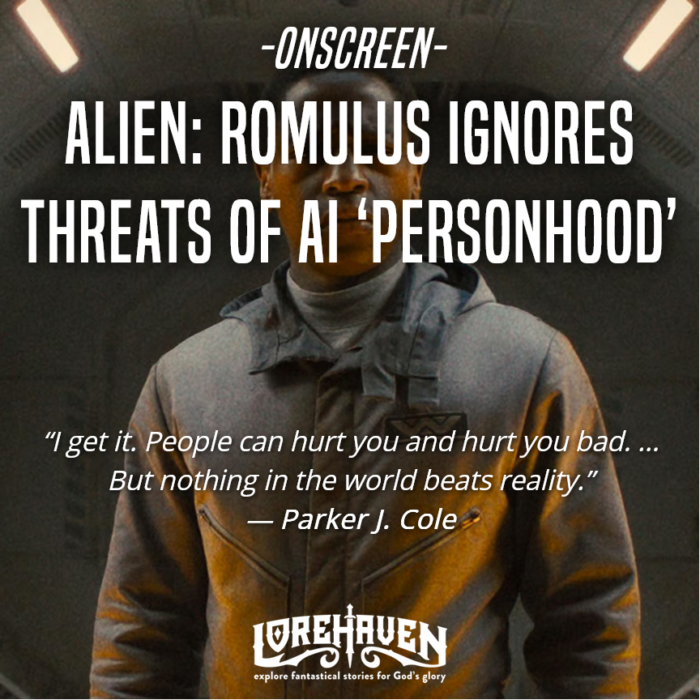Let’s Talk About Race and Racism. Part 4: Racism and White Identity at the Founding of the U.S.A.
There’s a United Nations proclamation on race and racial prejudice that also has plenty to say about ethnic discrimination, discrimination based on national origin, and religious prejudice–as if they all were in essence the same thing. These certainly are related topics, but I think it’s important to point out that they are different things. Tribalism is not in fact the same thing as racism. This post will look at the history of racism itself and “white identity” as seen in the documents and institutions at the very beginning of the United States of America. (I’d originally planned to cover a broader topic, the Rise of White Supremacy, but it proved to be too long for one post.)
To illustrate the difference between tribalism and racism, let me refer to the 1990s war in former Yugoslavia, in which (among other things) ethnic Serbs and Croats killed one another and both sides killed Bosnians. “Ethnic cleansing” was common, in which one side eliminated groups different from the majority in a certain area. Note that not only are all these people of the same race, as in European (“White”), they are all Slavic and all speak the same language. But the Serbs write their language in Cyrillic alphabet due to Orthodox Church influence, the Catholic Croats use a Latin-based alphabet, and the Bosnians studied Arabic at least on occasion, because the majority of them were Muslims. These relatively minor differences during the lifespan of an officially secular Yugoslavia, differences which had absolutely nothing to do with race, proved to be enough motive to slaughter one another when the central authority of Yugoslavia dissolved.
Human tribalism of this sort has always been around, which I already mentioned as “ethnocentrism”–people able to hate and loathe one another based on their perception of the others being different. And note that while religion was an important element in identifying the different tribes in ex-Yugoslavia, the war wasn’t really about religion. The war wasn’t about forced conversions–it instead featured murders, rapes, and driving people out of their homes. Horrible tribalism–but that isn’t the same as racism. The war in former Yugoslavia had nothing to do with racism.
So the observation that racism is new, an observation played out out in these posts, is not meant to downplay the human capacity to be tribal and decide to slaughter or otherwise abuse other people. That’s always been around. But racism is something else.
Racism in the US Constitution
Unless you’ve read it recently, you may be surprised to hear only one race is directly mentioned in the US Constitution. Let me quote the pertinent bit, under Section 2, talking about the US House of Representatives:

Beginning of the U.S. Constitution
Representatives and direct Taxes shall be apportioned among the several States which may be included within this Union, according to their respective Numbers, which shall be determined by adding to the whole Number of free Persons, including those bound to Service for a Term of Years, and excluding Indians not taxed, three fifths of all other Persons.
By the way, the 14th Amendment repealed the “three fifths of all other Persons” section. However, the “Indians not taxed” part was not repealed. American Indians in the United States were not considered US citizens until 1924.
That’s right–the one race directly mentioned (and let’s be clear that most Americans at the time of the ratification of the Constitution thought of it as a race) is “Indians.” “Indians not taxed” were not to be included in the count of “the whole Number” of persons, whether free or not, because legally speaking the government of the United States regarded “Indians” as members of other nations. Nations with which the United States could conduct trade and upon whom the United States could declare war. Which doesn’t perhaps sound directly racist–after all, Native American tribes also regarded themselves as separate nations. However, the Declaration of Independence describes Indians as “merciless” and “savages,” so there should be no doubt that American Indians were definitely defined as “not people like us” by the Founding Fathers of the United States. Not just another race, but a race that most of the people of the United States believed it was only natural that “we” (“we” as in “we the people” of the United States) should be at war with.
Note that when the Bureau of Indian Affairs was established in 1824, it was part of the US War Department (which would later be renamed “the Department of Defense”). Not until 1849 would the bureau be placed in the newly-created Department of the Interior. I’m mentioning this to back up the idea that the early US government generally did think of American Indians as people–but “people we are at war with.”
Three Fifths Human?
I recall a conversation with an Army fellow soldier years ago, who was black, in which he was explaining to me the justification the Constitution had for saying black people are only to be counted as three fifths of white people. He said, “It’s because they didn’t believe black people had souls. That’s the missing two fifths.”
Let’s look at this as it actually was, neither over excusing nor over accusing. The reality was the 3/5 number came from a political compromise. Slavery had not been legal in any of the first colonies as they began, not directly anyway, but Southern colonies after a number of decades of African indentured servitude passed law codes recognizing and codifying slavery. However, Northern colonies also adopted law codes that recognized and permitted slavery, in part because some merchants based in Northern colonies were involved in the sale of enslaved people to plantations in the South.
But roughly around the time of the American Revolution, Northern attitudes about slavery being legal changed (though in fact some Northerners were always anti-slavery). Slavery was taken off the books and made illegal in various ways. These events were inspired in part by Christians who objected to the practice of holding black people permanently in slavery.
So at the Constitutional Convention, many Northern representatives were arguing for the abolition of slavery everywhere, North and South. Southerners representatives argued for it. To make a long story short, the two sides struck a series of compromises that included counting people who were not free as 3/5ths of a free person.
It wasn’t a deliberate statement about black people. It just kinda happened. Which doesn’t mean it wasn’t damaging in effect. Or wasn’t reprehensible. But it did not reflect a widespread belief that black people are soulless. Such a belief was not in fact common at the time…or else Southerners would not have supported Christian evangelism among those held in slavery, which they in general did very much support. Though it is true that racists considered black people inferior, as I will mention in a bit.
Legally White
Note the careful, careful language of the section of US Constitution I quoted above. It identifies “free Persons” and directly states “Indians” but when talking about slavery it says “all other Persons.” The word “slavery” itself does not appear. This ginger treatment stems from the political compromise reqired to get people ardently against slavery to sign the document.
But the law codes of various states make it clear what we’re talking about here. State codes, which I won’t directly quote, mention “Negroes” and make it plain they can either be free or slaves, but were the only race who could be enslaved in a way the law would support. That is, kidnapping or forcing a person to work was a crime, written in the law codes of various states as a crime–but excepting slavery, excepting “Negroes.” A black person did not have the same status before the law as the default position the law took in defending the general public.
So by inversion of those specifically mentioned as eligible for slavery, we get what the legal definition of a white person was. A white person was anyone who was not an Indian who could not be legally enslaved. Note this definition of a white person isn’t mentioned in the US Constitution at all, it’s derived from a comparision of documents.
How Rights Made White
Another important element needs to be emphasized here. It’s based on one of the ways ancient world slavery was different from modern world slavery.
As I mentioned in my previous post, anyone could be a slave in the ancient world. Slavery wasn’t linked to any specific race, not permanently.
Part of why it wasn’t relates to the idea of having rights. If you traveled back in time and told an ancient Roman that all people have “inalienable rights to life, liberty, and the pursuit of hapiness,” he or she would look at you as if you dropped in from outer space, even if you were wearing a Roman toga and speaking Latin…(though granted they’d be even more astounded if you showed up in modern clothing, speaking English 🙂 )
Why? Because “inalienable rights,” as in “rights that nobody can take away from you,” is something Romans didn’t believe in. They believed it was perfectly fine to take away another person’s rights. Though they also beleived in rule of law, in a sense they believed “might makes right.” That is, by right of conquest, it’s legal to make you or anyone else a slave.
But the United States formed at time when “rights of man” had gained prominence in Western thought. The inspiration for such ideas came from philosophers writing in French like Jean-Jacques Rousseau and and Montesquieu. These ideas were not at all unpopular in the United Kingdom, but the Continental Congress and the early United States argued that the British had denied the rights of what would become the United States, rights to taxation only with representation (which stems from Rousseau’s Social Contract theory of government). Many Americans also argued that having any king at all was a sign the United Kingdom was a den of oppressive despots.
Today we recognize that as American Revolutionary War rhetoric, since the UK was one of the freest nations of the 18th Century, though there’s no doubt many Americans believed having a king, any king, was a bad thing. Which is something worth considering here. If no one has the right to be king, if everyone has supposedly equal rights, how could anyone justify holding a particular race in slavery?
The sinister answer the culture cooked up was this one–the reason black people don’t deserve the same rights is because there is something wrong with them. They are not like us. They are defective somehow.
But note that without a concept of “universal rights of man” (as the French Revolution would put it in 1789), a concept we can without reservation consider praiseworthy, it wouldn’t have been necessary to in effect declare some people are not entirely human. Of course the motive for not seeing black people as entirely human was profit, as mentioned in the last post. But the justification would not have been necessary–they could have kept slaves like Romans did for “might makes right” reasons–except for the general idea that all people have inalienable rights.
If all people have inalienable rights, how can these people not have them? The racist would say, “Well, those people are not really people like you and me.” That idea, of “people like you and me,” people entitled to inalienable rights, that was the first definition of “white,” if you follow the impact of what it meant to be white in United States laws and customs.
The Changing Definition of “White”
I’ve heard Critical Race Theorists mention the definition of “white” changed over time (hey, I think even frequent Progressive commentator Notleia said this). But that’s actually mostly false. Yeah, the definition of white would eventually become a bit narrower in one way, excluding Hispanics, who were at first considered white, as in not Black, not Indian, i.e. subject to full protection of the law and counted as a full citizen. (It would become a bit broader eventually as well, to include West Asians and North Africans, i.e. Arabs and Persians and related groups, but not until the 20th Century.)
But the CRT crowd generally says the definition of “white” became more inclusive. That people who were discriminated against at various times in American history, such as Irish people, Germans, Italians, Jewish people, etc, were not at that time considered fully white. So in the name of white supremacy, supposedly, these peoples were oppressed.
The actual truth is more complex–and throws a wrench in the gearworks of the CRT system. In fact, racial prejudice was never the only kind of prejudice in the USA. White people were perfectly fine with discriminating against other people they recognized as white for reasons other than race.
The 1790 Naturalization Act stated that “free white persons” of “good character” could be admitted as citizens. This would be the law of the land until the 1870 Naturalization Act, which focused on birth in the USA (with the exception of “Indians”) allowing black people to be considered citizens for the first time. Between 1790 and 1870, US courts struggled with the question if Arabs like Syrians were “white” and could be citizens (the Supreme Court said both “yes” and “no” on this question) and wondered if people of non-Christian religion could be considered “white,” denying citizenship to a Sikh on this basis, but US courts never, not once, denied citizenship to Irish people or Italians or Slavs or even Jews based on the idea they were not white. During a time of plenty of prejudice against all of these ethnic groups.
It’s the modern Critical Race Theorists who are changing the definition of race and racism by making all forms of ethnic tension being about white supremacy (in their view). When in fact, an American Protestant of English decent in the 18th Century might despise an Irish Catholic, especially if a recent immigrant, yet would never suggest for one second the Irishman wasn’t white. “White” being whatever was not specifically Indian or Black in terms of legal protection; “white” being “European” in early race theory.
Please refer to my comments on the wars following the breakup of Yugoslavia and human tribalism to show what I mean about racism not being required for humans to be cruel to each other. You don’t have to deny someone else is human to hate them or think ill of them.
Though in the heyday of racism in the 1800s, it is true some racial theorists would specifically narrow the definition of white even more than what I mentioned, to talk about Aryan nations and related nonsense. Some of them would do that–but most did not. Most would simply talk about some whites being superior to others genetically. But I shall endevour to cover that in the next post, the Rise of White Supremacy.
Conclusion
So what are your thoughts on the legal theory of what it meant to be “white” in early America? Do you agree that the concept of universal human rights fed into the impulse to dehumanize those held in slavery? Were you suprised that “Indian” is the only race mentioned in the Constitution? What other thoughts come to mind?









































I think the concept of racism is more fluid than you give it credit for. (Which means I find the basis for your criticism of CRT to be faulty.) The purpose of racism is for in-group/out-group scheiss, so it entirely depends on the criteria for what is to be included and what is to be excluded. So I think religion can absolutely be a part of the muddle built up as the justification for whatever bull is going on at the moment. After a certain point, is there even a meaningful difference within the distinction, between discrimination based on race and discrimination based on religion or economic status?
But you have an agenda in mind, don’t you, Travis?
Is there a difference between a parking ticket ($30), a payment for a purse ($30), and paying someone back for loaned money ($30)?
Ask someone running a Buddhist monastery if it makes a difference whether they discriminate based on religion or skin color.
What a stupid question…
Does it matter if someone steps on your toes because you’re wearing a BLM shirt or a Packers hat? Kinda doesn’t matter when the thing that needs to happen is them getting off your foot.
I think it would make a difference if they stepped on my foot because of my religion, or because of my skin color. And, in the practical outworking of law, social dialogue, etc., it certainly matters to make the distinction.
I guess we’re just gonna differ on this one, because sure, it can matter for legalese purposes, but take a moment to remember that most of this doesn’t actually make it to court.
But be careful you don’t do that thing that goalpost-moving jerks do, where they pretend that microaggressions that don’t make it to court are not “real” racism.
It matters for a heck of a lot more than legalese purposes, and you know it.
No, I have changed my mind on the subject to downgrade the importance of the cause for someone being a jerkwad. That is a “them” problem, for them and their therapists, and to the rest of us, it only matters that their jerkwaddery is prevented from harming someone.
Lemme see if I can find a Captain Awkward for that.
Here it is!
https://captainawkward.com/2018/07/19/rule-explainer-why-we-dont-diagnose-people-through-the-internet/
I’d take you seriously if you didn’t move the goalpost on white males and those who believe differently from you on politics and religion.
Racism has different motivations and goals than discrimination based on religion. Racism attacks the worth of an individual, whereas discrimination based on religion sometimes does and sometimes doesn’t. Fighting racism takes totally different words and actions than fighting discrimination based on political affiliation, etc. If you believe CRT, it can never just be a “them” problem. So, what do you even believe?
But is it really all that different in motivation and goals?
Someone said at one point (I can’t be arsed to google it at the moment) that conservatism is based on the notion that one group must be protected but not constrained by the law, while there must be another group who is constrained but not protected by the law. So, in-group and out-group scheiss. Is religious discrimination any less irrational than racial discrimination? If so (obv you think so), how so?
And we still seem to be missing each other on the point about individual actions versus systemic injustices.
Yes, it’s much more rational in many cases (although sometimes not). See my response below to the other comment train. If you actually considered the real world, rather than your own agenda, you’d see the evidence everywhere.
You seem to be saying that because white males are statistically less likely to be at a disadvantage, it’s ok to discriminate against them and be a jerkwad, which is irrational goal-post moving. In doing so you can discriminate against poor white males who have been screwed by the same system. You think that’s ok? Because it’s not.
So you’re saying is that white dudes deserve the benefit of the doubt over the experiences of people who are not white dudes as to what constitutes discrimination and oppression, desu ne?
Who is the reliable narrator in this situation, Brennan, most of whom are people you have never met?
Lol, no, I’m saying you act like you care about all discrimination, but you obviously don’t. Then you say that all sorts of discrimination are equal, when in fact they can’t be – especially if you’re into CRT. And you complain about goalpost moving while doing it yourself. And you want to focus on systemic injustice by focusing on the individual white guy who did something wrong, but when others focus on the individual you say that’s a no-no, you must focus on the system. Then you continue building strawmen to knock down… I’m getting bored.
I did say I was gonna throw up some Captain Awkward, I should follow through on that: https://captainawkward.com/2018/02/26/1083-and-1084-nazis-are-beyond-awkward-do-not-engage/
I doubt very much I will ever follow a link to something labeled as “Captain Awkward.” I don’t mean that as a slap in the face, but you are failing to speak a language I respect here–the language of serious study and considered thought. I’m not interested in jokes here.
Welp, I guess I shouldn’t be surprised that maybe you aren’t confidence in my assessment of a source as useful even if it has a funny name.
You might be interested in seeing my reply to Autumn’s comment. What Critical Race Theorists are doing is in essence moving the goalposts on what racism is or was. Why they are doing that, I can only speculate. A speculation I don’t care to engage in as of this moment.
But in effect it does matter when we are talking about American history if there was from the beginning a concept of “white” that people sought to defend and exclude others from. Actually the concept of “white” developed over time. Europeans landing in the Americas had many types of prejudices–some based on nationality, many based on religion, quite a few based on social status–racial prejudice being just one among many. Historically, the focus on race would become more important over time. Racism became more important than it was at first.
What I just said is actually the truth, as best I am able to determine truth. CRT is making the definition of racism anachronistic in essence.
Your statement about my agenda is quite interesting. Of course every time anyone sets out to explain something based on history, they have the agenda of convincing others what they are saying is true. My primary reason for trying to convince people what I am saying is true is that I believe it. Yes, that’s a type of agenda, but one that’s immediately obvious.
The bit about an agenda was mostly a joke. Should I have put in a passive-aggressive smiley on that? “Agenda” has become such a loaded word that it feels like an accusation when it’s often just a statement of fact, desu ne?
I don’t wanna anticipate your bit about discrimination based on religion too much, but I have a feeling that you want to make it sound less bad than racism.
Obviously religious discrim. can be just as bad. But there’s also instances where it’s obviously not. Ex. a Muslim Mosque not hiring a Christian Pastor because they want to discriminate based on religion, or vice-a-versa. It’s actually good in instances such as that.
Except that’s not what the actual issues on the ground are. I’m pretty dang sure no one cares about assessing Muslims for a Baptist pastorship.
The issues that ARE happening is more along the line of people firing the math teacher or the janitor of a religious school for being gay or getting a divorce or an abortion, when there is no evidence that being gay/divorced/abortion-having affects their ability to perform in the capacity of being math teacher or janitor.
(Like, ESPECIALLY if these are the same people who will defend molester pastors and argue that they should still be in contact with and in an authoritative position with children.)
Except that’s exactly the same issue you just complained about.
We can all agree defending pervert pastors is insane and evil.
I should have read this comment before responding above. Agreed.
A lot of people blame racism/white supremacy for things that might not actually be related, but most of them aren’t actually arguing that racism is the only problem facing the world. Most of them are fully aware that there are other types of prejudices and that people can hate each other while also seeing each other as fully human. So pointing out that racism wasn’t the only prejudice in early America isn’t as useful to the conversation. A lot of super woke people would be more likely to roll their eyes and be like ‘Duh, why else do you think we complain about sexism and homophobia and cultural intolerance and all that other stuff?’ Racism just happens to be pretty high on their list.
That’s probably the most notable thing that came to mind. As for your questions at the end, I think I agree that the process you described probably applied to a lot of people, though I expect it was more complicated than that. Different people often go through different processes to get to a certain point. Though you did allude to there being a lot of complex circumstances happening during America’s founding.
Autumn, I think pointing out that racism isn’t the only kind of ethnic discrimination is very important for definining what is the scope of racism. Yes, of course modern people are often concerned about gender discrimination and homophobia…but when talking about the discrimination that, say, the Irish faced, the modern Critical Race Theorist explanation for that is that the concept of whiteness changed and Irish people were not really considered white at one time–that’s why they were discriminated against. What such a thought is doing is saying that the idea of “white” as a common group that sought to defend itself and assert its authority and power over other groups is something that’s always been true in U.S. history. When in fact the concept of being “white” started out amorphous and ill-defined, basically that which is non-Indian and non-Black. Which had absolutely nothing to do with many of the prejudices early Americans had.
What actually happened is that non-racial prejudices of many kinds–religious and ethnic prejudices of many flavors–would become less important, and racism would become more important. But it’s a mistake to read into the past that racism was the only issue of importance in America with regard to ethnic tensions. And it is being thought of that way–I’m not making that up.
No, I don’t want to cause any eye rolling. But the 1619 Project and various other cultural expressions inspired by CRT really /do/ make racism the One Important Thing when talking about ethnic tensions and prejudices of the past. But it wasn’t.
Yanno, you guys make a lot of sounds about CRT for having not even read it.
somewhat related ootubes:
I have in truth read more summaries of CRT in Wikipedia or at times JSTOR scholarly works than the writings of the theorists themselves. But I have read some things. Why would you presume I haven’t?
Also Brennan speaks for himself, not for me. We are not a “you guys.”
Okay, let’s see if I can articulate better after my initial reaction of wanting to slam my head on a desk.
So you think that race isn’t the Big Effin Deal, so what do you think was? Social class? ((((Guess what race plays a part in social class)))) Maybe you should be writing a series on social class rather than racism, then. Get you a subject you can actually believe in.
‘Cause so far you’re coming across as “racism wasn’t that bad in the 1600s therefore CHECKMATE LIBERALS.” I’m sure that’s super comforting to the Black people executed without trial by cops on the street. (/s)
Yanno, why don’t I make a semi-official challenge for you to write about social class? Read that White Trash book by Nancy Isenberg and Dying of Whiteness by Jonathan Metzl.
I think you may be reading politics into his posts when he’s not intending it…
That’s rich.
Also, the book Bullshit Jobs by David Graeber.
Social class was a big deal. So was non-racial ethnic prejudice, as in, “Yeah I know the Irish are white and cannot be permanently enslaved by law–but they’re bloodly animals!” I.e. it was conceivable to think of someone as both white and “other.” That got quite complex at times–for example, early Americans tended to both loathe and love both the French and the British.
There was also anti-immigration prejudice as reflected in the American Party, better known as the No-Nothing Party. Stereotyping based on nationality was super common. And religious stereotyping was common.
Racism was a thing, too. But at first, not any more important than other prejudices. Though how important depended on who you were and where you lived. Charleston and New York City were not the same (and still aren’t, but whatever).
In other words, the past was like a foreign land to modern people, different from our times and complex as all societies are. Yet modern people are in general doing a massive reduction of all complexity when looking at the past.
There seems to be a hidden agenda in so doing (speaking of agenda), because a complete villification of the past does allow one to imagine the need to totally destroy our entire society and rebuild from from scratch. To build a new utopian hellhole, er, I mean “paradise.” 😉
As opposed to removing the cancers that ail us, but allowing the patient to live.
But maybe there is no hidden agenda. Maybe a large corpus of modern people, trained by increasingly fast-paced media, simply lack the patience required to fully understand complex issues. It is in fact intellectually easier to see what we perceive as the big issues of our day as being basically the same in the past…
Hey, I have been reading a new thing about humans and their cognitive differences from other animals and about how that might be related to our social capacity (Sapiens by Yuval Noah Harari). Previously I have posted some junk about the natural “tribal” group to be about 50 people. Turns out, it’s more like 150 people.
That is a definite leap beyond most animals, but what makes us truly unique is that we can coordinate with individuals that WE DON’T EVEN KNOW (dramatic music). The author credits this because of our capacity to imagine and communicate about things that don’t even exist in a physical sense, like nationality or human rights or money or legal entities.
Imma tie that back into this in-group/out-group stuff because beyond the 150 people that we can make close relationships with, we rely on these ideas that don’t exist in real time-space, like ethnic groups and religions and junk, basically narratives that we tell ourselves. So outside of our 150 people, we rely on scripts. And (dramatic music) racism can make up part of those scripts, like who gets the benefit of the doubt between the white person you don’t know and the black person you don’t know (you know how this part goes).
It’s the narratives and unconscious biases like these that help make up the systemic injustice that I keep nattering on about. Who gets the benefit of the doubt. Who gets to be accommodated. Who is more reliable. Who has the power.
Referring to a book like this works better for me than Captain Awkward. Just to explain what I meant by “speaking my language.” FYI.